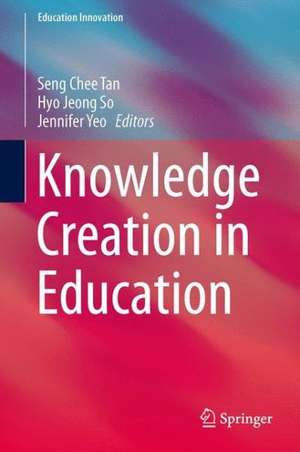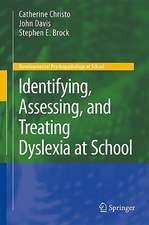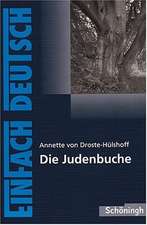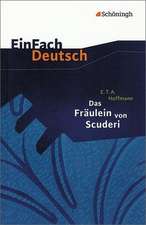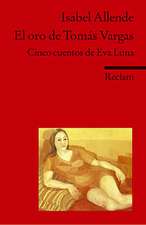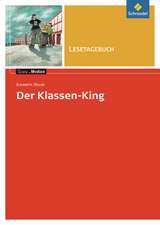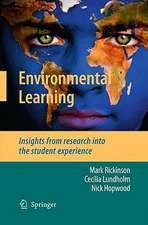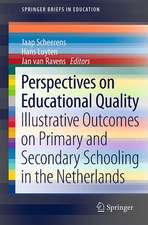Knowledge Creation in Education: Education Innovation Series
Editat de Seng Chee Tan, Hyo Jeong So, Jennifer Yeoen Limba Engleză Hardback – iul 2014
| Toate formatele și edițiile | Preț | Express |
|---|---|---|
| Paperback (1) | 945.92 lei 43-57 zile | |
| Springer Nature Singapore – 27 sep 2016 | 945.92 lei 43-57 zile | |
| Hardback (1) | 946.69 lei 43-57 zile | |
| Springer Nature Singapore – iul 2014 | 946.69 lei 43-57 zile |
Din seria Education Innovation Series
- 24%
 Preț: 742.69 lei
Preț: 742.69 lei - 18%
 Preț: 732.70 lei
Preț: 732.70 lei - 15%
 Preț: 647.08 lei
Preț: 647.08 lei - 15%
 Preț: 644.63 lei
Preț: 644.63 lei - 15%
 Preț: 648.89 lei
Preț: 648.89 lei - 15%
 Preț: 656.58 lei
Preț: 656.58 lei - 15%
 Preț: 648.56 lei
Preț: 648.56 lei - 15%
 Preț: 643.34 lei
Preț: 643.34 lei - 18%
 Preț: 900.18 lei
Preț: 900.18 lei - 20%
 Preț: 571.85 lei
Preț: 571.85 lei - 18%
 Preț: 789.35 lei
Preț: 789.35 lei - 15%
 Preț: 641.03 lei
Preț: 641.03 lei - 18%
 Preț: 948.29 lei
Preț: 948.29 lei - 20%
 Preț: 564.21 lei
Preț: 564.21 lei - 15%
 Preț: 647.59 lei
Preț: 647.59 lei - 18%
 Preț: 1003.70 lei
Preț: 1003.70 lei - 18%
 Preț: 901.74 lei
Preț: 901.74 lei
Preț: 946.69 lei
Preț vechi: 1154.51 lei
-18% Nou
Puncte Express: 1420
Preț estimativ în valută:
181.21€ • 196.90$ • 152.31£
181.21€ • 196.90$ • 152.31£
Carte tipărită la comandă
Livrare economică 21 aprilie-05 mai
Preluare comenzi: 021 569.72.76
Specificații
ISBN-13: 9789812870469
ISBN-10: 9812870466
Pagini: 328
Ilustrații: XIX, 305 p. 40 illus., 11 illus. in color.
Dimensiuni: 155 x 235 x 23 mm
Greutate: 0.64 kg
Ediția:2014
Editura: Springer Nature Singapore
Colecția Springer
Seria Education Innovation Series
Locul publicării:Singapore, Singapore
ISBN-10: 9812870466
Pagini: 328
Ilustrații: XIX, 305 p. 40 illus., 11 illus. in color.
Dimensiuni: 155 x 235 x 23 mm
Greutate: 0.64 kg
Ediția:2014
Editura: Springer Nature Singapore
Colecția Springer
Seria Education Innovation Series
Locul publicării:Singapore, Singapore
Public țintă
ResearchCuprins
FORWARD.- 1. Introduction.- SECTION A: THEORETICAL AND METHODOLOGICAL FOUNDATIONS FOR KNOWLEDGE CREATION.- 2. Perspectives of Knowledge Creation and Implications for Education.-3. Knowledge Building and Knowledge Creation: One Concept, Two Hills to Climb.- 4. Trialogical Approach for Knowledge Creation.- 5. Harnessing Emerging Technologies to Build the Next Generation of Knowledge Creation Platform for School Students.- 6. Statistical Discourse Analysis of Online Discussions: Informal Cognition, Social Metacognition and Knowledge Creation.- 7. Creating Knowledge - Commentary on Section A.- SECTION B: KNOWLEDGE CREATION PEDAGOGIES IN PRACTICE.- 8. Designing the Situation for Pervasive Knowledge Building: Future School Experiences.- 9. From Problem-based Learning to Knowledge Creation.- 10. Knowledge Creation in the Mangle of Practice: Implications for Educators.- 11. Developing Student-Centred Teaching Beliefs through Knowledge Building among Prospective.- 12. Conceptual Shifts Within Problem Spaces for Knowledge Building Practice Within a Teacher Community.- 13. Knowledge Building Pedagogy and Teachers’ Technological Pedagogical Content Knowledge.- 14. Teacher Learning in a Professional Learning Team: Of Contradictions and Action Possibilities.- 15. Reflection and Commentary on Knowledge Creation in Practice.- CONCLUSION.- 16. Knowledge Creation in Singapore Schools: Our Journey and Ways Forward.
Notă biografică
Seng Chee Tan, Ph.D., is the Head of the Learning Sciences and Technologies academic group of the National Institute of Education, Nanyang Technological University, Singapore (LST, NIE). His research interests include computer-supported collaborative learning and knowledge creation in education. He has conducted several intervention projects in Singapore classrooms using knowledge building pedagogy and has been working on building teachers’ community for knowledge creation among teachers.
Dr. Hyo-Jeong So is currently affiliated to the department of Creative IT Engineering at Pohang University of Science & Technology (POSTECH), Korea. Previously, she was working with LST, NIE. Her research interests include computer-supported collaborative learning (CSCL), mobile learning, and human-computer interaction (HCI). In Singapore, she conducted research projects on knowledge building in primary and secondary school contexts and explored the pedagogical and technological design of pervasive knowledge building accessible to a wide range of students.
Jennifer Yeo is an Assistant Professor at the National Institute of Education (Singapore). Prior to joining NIE, Jennifer taught physics and English in Victoria School for eight years. She was the subject head of audio and visual department and then of physics. As she embarked on the Master of Arts in instructional design and technologies and Ph.D, she assisted in various research projects related to the use of technologies in teaching and learning. Jennifer's research interest is in understanding how people learn science. Her earlier studies looked at students’ sense-making in problem-based learning and knowledge building environments. Her current research focuses on the role of representations in students’ construction of scientific explanation and argumentation.
Dr. Hyo-Jeong So is currently affiliated to the department of Creative IT Engineering at Pohang University of Science & Technology (POSTECH), Korea. Previously, she was working with LST, NIE. Her research interests include computer-supported collaborative learning (CSCL), mobile learning, and human-computer interaction (HCI). In Singapore, she conducted research projects on knowledge building in primary and secondary school contexts and explored the pedagogical and technological design of pervasive knowledge building accessible to a wide range of students.
Jennifer Yeo is an Assistant Professor at the National Institute of Education (Singapore). Prior to joining NIE, Jennifer taught physics and English in Victoria School for eight years. She was the subject head of audio and visual department and then of physics. As she embarked on the Master of Arts in instructional design and technologies and Ph.D, she assisted in various research projects related to the use of technologies in teaching and learning. Jennifer's research interest is in understanding how people learn science. Her earlier studies looked at students’ sense-making in problem-based learning and knowledge building environments. Her current research focuses on the role of representations in students’ construction of scientific explanation and argumentation.
Textul de pe ultima copertă
This book arises from research conducted through Singapore’s National Institute of Education on such topics as integrating knowledge building pedagogies into Singaporean classrooms, with both students and teachers across school levels, from primary schools to high schools. Additionally, international scholars contribute research on theories of knowledge creation, methodological foundations of research on knowledge creation, knowledge creation pedagogies in classrooms and knowledge creation work involving educators.
The book is organized in two sections. Section A focuses on theoretical, technological and methodological issues, where sources of justification for claims are predominantly theories and extant literature, although empirical evidence is used extensively in one chapter. Section B reports knowledge creation practices in schools, with teachers, students or both; the key sources of justification for claims are predominantly empirical evidence and narratives of experience.
The editors assert that schools should focus on developing students’ capacity and disposition in knowledge creation work; at the same time, leaders and teachers alike should continue to develop their professional knowledge as a community. In the knowledge building vernacular, the chapters are knowledge artifacts – artifacts that not only document the findings of the editors and authors, but that also mediate future advancement in this area of research work. The ultimate aim of the book is to inspire new ideas, and to illuminate the path for researchers of similar interest in knowledge creation in education.
The book is organized in two sections. Section A focuses on theoretical, technological and methodological issues, where sources of justification for claims are predominantly theories and extant literature, although empirical evidence is used extensively in one chapter. Section B reports knowledge creation practices in schools, with teachers, students or both; the key sources of justification for claims are predominantly empirical evidence and narratives of experience.
The editors assert that schools should focus on developing students’ capacity and disposition in knowledge creation work; at the same time, leaders and teachers alike should continue to develop their professional knowledge as a community. In the knowledge building vernacular, the chapters are knowledge artifacts – artifacts that not only document the findings of the editors and authors, but that also mediate future advancement in this area of research work. The ultimate aim of the book is to inspire new ideas, and to illuminate the path for researchers of similar interest in knowledge creation in education.
Caracteristici
Pushes the boundary of knowledge building pedagogy towards a more inclusive paradigm of knowledge creation Offers the most thorough account yet of integration of pedagogies of knowledge creation paradigm into Singaporean classrooms Expands the knowledge base on the topic of knowledge creation in education from theoretical, methodological and empirical perspectives Provides a timely update on advancement in the theories and research methodologies of knowledge building Includes supplementary material: sn.pub/extras
